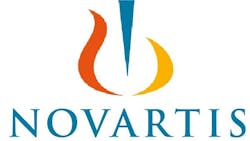Novartis Revamps Pharma World with Mega-deals with GSK, Eli Lilly
GENEVA -- Drugmakers Novartis (IW 1000/71) and GlaxoSmithKline (IW 1000/100) announced an extreme makeover Tuesday, revealing multi-billion-dollar deals also involving Eli Lilly (IW 1000/89) in a major shakeup of the pharmaceutical sector.
The string of takeovers and ventures involving the three giant healthcare groups will see Novartis sharpen its focus on the high-grossing cancer sector and GSK seizing the chance to boost its share in vaccines.
"These transactions mark a transformational moment for Novartis," chief executive Joseph Jimenez said in the statement, adding that the deals would help give the Swiss company a sharper focus.
"Patients will benefit from even higher levels of innovation that this focus may afford," he said, noting that the agreements would "improve our financial strength, and are expected to add to our growth rates and margins immediately."
Market observers also hailed the deals, which mark one of the biggest shake-ups at Novartis since its creation in a 1996 merger nearly two decades ago and which comes as the global pharmaceutical industry struggles to deal with cuts in government healthcare spending around the world.
'Long-awaited Simplification'
Analyts at Vontobel Bank described it as a "long-awaited simplification of (Novartis's) corporate footprint," while the Notenstein private bank said the Swiss group had managed to find a solution for virtually all of its weaker units in one fell swoop.
For starters, the Swiss company plans to buy GSK's oncology (cancer treatment) business for $16 billion in cash, although $1.5 billion of that would depend on future performance.
Novartis said the acquisition would give it ownership over a range of top-line cancer drugs, in a move that should strengthen its position as the world's second-largest cancer treatment provider, hot on the heels of compatriot Roche.
Two recently approved drugs for treating skin cancer -- Tafinlar and Mekinist -- are among the medication that Novartis would own following the takeover.
In return for GSK's oncology business, which last year raked in sales of about $1.6 billion, Novartis said it would sell its vaccines division, excluding flu vaccines, to the British company for up to $7.1 billion, also in cash.
The two companies further announced a joint venture to create "a world-leading consumer healthcare business," focused on wellness, oral health, nutrition and skin health and expected to book around $10 billion in annual sales.
Non-prescription drugs like Novartis's Nicotinell products aimed at helping people stop smoking and its Voltaran Dolo back pain relief medication, and GSK's Panadol pain-relief tablets will fall under the joint venture.
"The geographic footprint would span all regions, with scale and commercial presence in the developed world as well as in key emerging markets, such as Brazil, China, Mexico and Russia," Novartis said.
GSK, which will hold 63.5% of the newly-created business, said it would use proceeds from the deals to return £4.0 billion (US$6.7 billion, 4.9 billion euros).
But the shake-up did not end there. Novartis also said it had agreed to sell its animal health division Eli Lilly for $5.4 billion.
Focus on Cancer, Eye-care, Generics
The Swiss company said its divestment from its animal health division was "the result of a competitive process," stressing the move would give Lilly the leading position in the field while allowing Novartis to better focus on innovative pharmaceuticals, eye-care and generics.
Novartis Animal Health is present in about 40 countries and posted 2013 revenue of approximately $1.1 billion.
"We believe the divestment of our smaller vaccines and animal health divisions will enable us to realise immediate value from these businesses for our shareholders, and those divisions will benefit from being part of large, global businesses that are also leaders in their segments," Jimenez said.
Vontobel analysts welcomed the high price Novartis had secured for its animal health division, saying the deal, which is expected to conclude during the first quarter of 2015, was "great for Novartis shareholders."
The deals with GSK, which require approval from the British firm's shareholders, are expected to be completed by the middle of next year.
Investors lapped up the takeovers, which come amid signs Europe's mergers and acquisition market is finally rebounding after years of doldrums.
GSK chief executive Andrew Witty said the deals accelerate the British firm's "strategy to generate sustainable, broadly sourced sales growth and improve long-term earnings."
- Nina Larson, AFP
Copyright Agence France-Presse, 2014
About the Author
Agence France-Presse
Copyright Agence France-Presse, 2002-2025. AFP text, photos, graphics and logos shall not be reproduced, published, broadcast, rewritten for broadcast or publication or redistributed directly or indirectly in any medium. AFP shall not be held liable for any delays, inaccuracies, errors or omissions in any AFP content, or for any actions taken in consequence.
